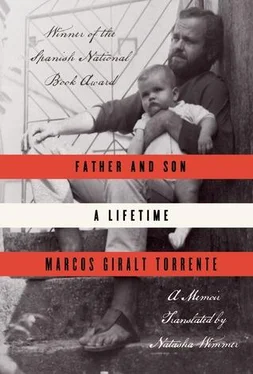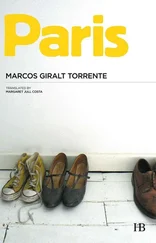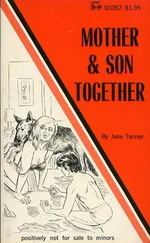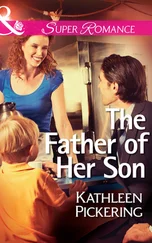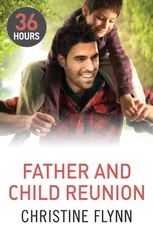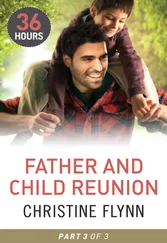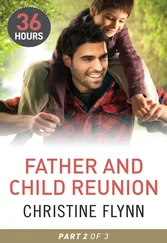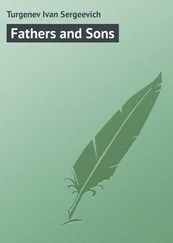I had money. My father’s money. A cushion of sorts.
And I amused myself.
I went out, I stayed out late, I went to the movies, I had dinner and lunch out, and I spent hours each day finishing the apartment where my father would never live with my wife and me, putting up bookcases, arranging furniture, upholstering sofas, decorating it as he would have done. Better, in one regard: I didn’t economize. I also hung more paintings of his than he would have hung.
I saw people I hadn’t seen for a while and I learned to tell them what had happened to me. The short version for those who simply asked, the longer and more detailed one for those who wanted more, and, for special occasions, the one explaining how his wishes were carried out. It was in these trial efforts that I began to use the image of the circle.
One day the newspaper I write for asked me to review a book. Little by little I began to lead a life resembling the one I’d had before my father got sick, and another day, in the early stages of the writing of this memoir, I wrote the first chapter almost in one sitting.
Since then, there’ve been many times when I wanted to give it up, and each crisis was followed by periods of straying.
My scruples only grew, as did the fear of hurting others, and my doubts about whether what I was writing would transcend the interest it held for me and take on literary substance.
But no matter how long I strayed, I always came back to it in the end.
Partly out of stubbornness, partly because I felt that it couldn’t be any other way, partly because I lacked the energy to quit a book and start from nothing again.
And especially, I suppose, because I didn’t want to abandon my father so soon.
As a result, I’ve written and I’ve run, I’ve written and I’ve run; and no matter which it was, the only way I went was around in circles.
Meanwhile I’ve kept reading. Modiano: Un pedigree ; Pamuk: My Father’s Suitcase ; Simenon: Letter to My Mother ; Héctor Abad: Oblivion ; Peter Handke: A Sorrow Beyond Dreams ; Juan Cruz Ruiz: Ojalá octubre ; Simone de Beauvoir: A Very Easy Death ; Giani Stuparich: L’Isola ; Lolita Bosch: La familia de mi padre ; A. M. Homes: The Mistress’s Daughter ; J.M.G. Le Clézio: The African .
And from the opposite perspective, the father’s: Quieto by Màrius Serra; Wrong About Japan by Peter Carey; The Film Club by David Gilmour …
I read a graphic novel about a father and his autistic daughter.
And though it isn’t directly related to the father-son pairing, Perec’s Je me souviens .
Circles. Random but always suggestive books, like My Life as a Russian Novel by Emmanuel Carrère.
Or essays, like María Zambrano’s on confession as a literary genre.
And I recently saw a documentary film: My Architect by Nathaniel Kahn, in which Kahn follows the trail of his father, the American architect Louis Kahn, whom he hardly knew.
In the film, Louis Kahn says something obvious that nevertheless made me think: “How accidental we are, our existences are, really, and how full of influence by circumstance.” He’s referring to his decision to become an architect, and I can’t say whether his son, the director of the documentary, meant to lend added meaning to the statement by using it to conclude two segments, but the fact is that it can easily be extrapolated to fit the more personal subject of his film: the complex ties that bind us to our origins, the need to make peace with them. In essence, our life is composed of fortuitous events. Infinite possibilities spring from each decision we make, not to mention the effects of others’ decisions on us. The future is uncertain; we live in the present. The past is the only thing that seems fixed, and we tend to mythicize it. It gives us something to rebel against or reconcile with. Parents may or may not serve the same purpose, and for that reason alone they are sources of conflict. At the very least, they’re guilty of having brought us into the world.
Nursing a wound might be profitable from an artistic standpoint. But only the strongest of us or those who’ve been gravely injured can live forever with an open wound.
Besides, and this quickly becomes clear, our predecessors were also creatures of fate, also had scores to settle, were also cheated.
Each of us is just one more piece in a child’s Meccano set, and we matter only as much as we come to believe that we matter.
All the books I’ve been reading, no matter what drives them, whether it be filial devotion, the urge for revenge, remorse, or mere literary ambition, simply confirm this fact.
Our troubles aren’t exclusive to us. To a greater or lesser degree and in one way or another, everyone has faced them.
And most of us, at one point or another, have wanted to resolve them once and for all.
Close the circle.
Though some — just a few — do it only to say yet again: I was right.
And to make a record of it.
For someone of my grandfather’s generation, success as a father meant dealing his children a hand no worse than the one he’d been dealt. Beginning with my father’s generation, it hasn’t been so easy, maybe because we’ve gotten softer. For further confirmation, we have the testimony of Sibylle Lacan’s Un père .
My father didn’t squander the poor hand that he was dealt. He bettered it. He amounted to more than his father ever did. He was a cultured and sensitive man. Curious about almost everything.
And unlike my grandfather, who was the very image of failure, he didn’t fail.
Though it wasn’t enough for him, though in the end he didn’t get all the recognition he deserved, he was an excellent painter. He never conspired against others, never shut anyone out, as others had done to him.
He liked his work. Toward the end he lived almost exclusively for art. For looking at art, thinking about art, making art.
That much he had. No matter what he said at the end, in the cold fever of approaching death. Unlike my grandfather, his father, who spent his life seeking success in business and was left with nothing when all his ventures failed.
The friend he met in Brazil counts as a failure, impossible to deny it. And yet it would be unfair for him to make his entrance into the next world with that mark against him. No one who gives generously and is betrayed nonetheless, no one who takes a blow when he’s down and doesn’t shed a tear, can be said to have failed.
Did my father and my grandfather ever talk? Did they make peace with each other?
I don’t think so.
And yet I’m sure that my father forgave him. That what he minded most, in any case, was never having told him what all parents want to hear on their children’s lips at least once: your mistakes don’t count, your intentions were good, and time simply got the better of you.
Because at the end of the day, that’s our greatest mistake, from which all others spring: we think that time is much more forgiving than it is.
And that there’s time for everything, when in fact there isn’t.
I had the time to tell this to my father — not just tell him, but show him — and he did everything he could to smooth the way. There are no scores to be settled; there were none when I began to write.
And, of course, no guilt about his death for which I might seek forgiveness. So strong is my sense of having done right that I haven’t even resorted to the exculpatory urge to tell myself that he died of natural causes, since the drugs the doctors gave him, which I was taught to administer, weren’t supposed to take effect so soon.
And no guilt, of course, for having tried to deceive him about his illness.
Читать дальше
